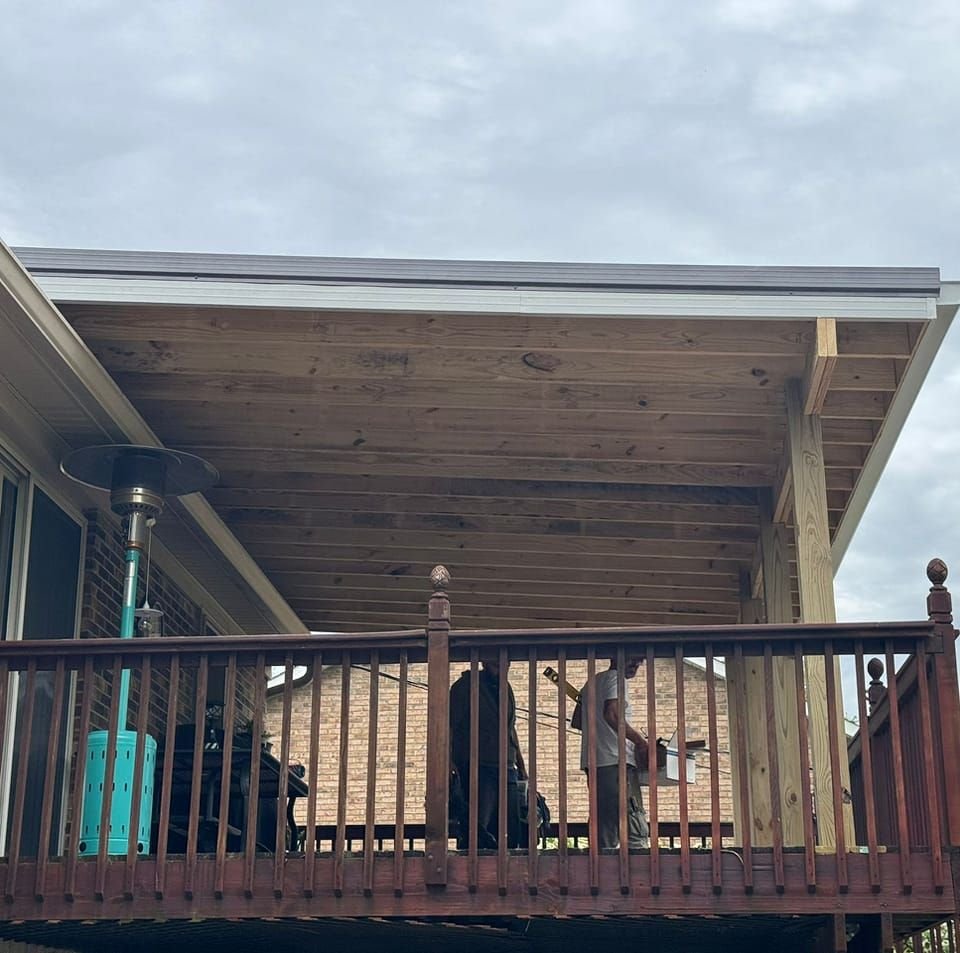As businesses evolve and grow, their physical space plays a crucial role in shaping customer experiences and supporting employees’ productivity. In Erlanger, Kentucky, commercial renovations have become a key strategy for local businesses to modernize their establishments, meet industry standards, and create spaces that align with their brand identity. Whether it’s updating an office, reimagining a retail space, or renovating a restaurant, commercial renovations are an essential investment for businesses looking to stay competitive in a fast-changing market.
Why Renovations Matter for Businesses
1. Enhancing Brand Image and Customer Experience
The look and feel of your business space speak volumes about your brand. Customers and clients form immediate impressions based on the aesthetics and functionality of your environment. A clean, modern, and well-maintained space not only attracts customers but also reflects your company’s values and standards.
For businesses such as retail stores, a renovated space with updated lighting, floor layouts, and fresh décor can create a more appealing shopping experience. In restaurants, revamping the interior design, seating arrangements, and overall ambiance can help establish the kind of atmosphere that keeps patrons coming back.
Renovations also allow businesses to better align their physical spaces with their brand identity. A tech-focused business may want sleek, minimalist design elements, while a creative agency might prefer a more colorful, dynamic environment. Updating your space ensures that the look and feel of your business match the message you want to convey to your customers.
2. Improving Employee Satisfaction and Productivity
Renovations aren’t just for your customers—they’re also essential for your employees. A comfortable, well-designed workspace can drastically improve employee satisfaction, reduce stress, and increase productivity. Whether you’re updating the layout of your office to encourage collaboration, adding ergonomic furniture for better comfort, or installing modern amenities to improve convenience, a renovation can make a big difference in how employees feel about their workplace.
A comfortable office with the right facilities—like improved lighting, efficient HVAC systems, and collaborative workspaces—can boost team morale and help employees feel more motivated. Additionally, employees who work in an environment that supports their well-being are more likely to stay with your company, reducing turnover and improving long-term business stability.
3. Increasing Property Value
When you invest in renovations, you’re not just improving your immediate working conditions; you’re also enhancing the long-term value of your property. This is particularly important if you’re leasing or plan to sell your business space down the road.
Upgrades such as modernized facades, better landscaping, or the addition of parking spaces can increase the appeal of your property to potential buyers or renters. In addition, improvements to safety systems, energy efficiency, and overall building infrastructure can make your space more desirable on the market, ensuring you get a better return on investment if you decide to relocate or sell.
4. Ensuring Compliance and Safety
In many industries, safety and compliance are non-negotiable. A renovation project provides a perfect opportunity to bring your business space up to code and make necessary safety upgrades. Whether it’s enhancing fire safety features, updating restrooms for accessibility, or installing better ventilation systems, renovations can ensure your space is safe for both employees and customers.
Additionally, staying up to date with building regulations and health codes not only protects your business from fines and legal issues but also provides peace of mind for all those who work and visit your space.

Types of Renovations for Business Spaces
1. Office Space Upgrades
For businesses that operate in office environments, a renovation can improve both employee satisfaction and operational efficiency. Office renovations can include:
Open layouts that foster collaboration and communication between teams.
Meeting rooms with updated technology, such as video conferencing capabilities.
Workstations designed for comfort, with ergonomic chairs, desks, and lighting.
Break areas that offer relaxation and promote social interaction among employees.
Office renovations should focus on creating a productive and comfortable environment, which in turn improves overall business performance and employee morale.
2. Retail Store Makeovers
In the world of retail, creating an engaging shopping environment is key to attracting customers and enhancing sales. Renovations for retail stores often include:
Updated storefronts to capture attention and invite customers inside.
In-store displays that showcase products more effectively and draw customers to key items.
Improved lighting to create a more inviting and brighter shopping experience.
Modern fitting rooms that provide comfort and privacy.
For a retail business, a well-designed space that enhances the customer experience can directly lead to higher sales and increased customer loyalty. Renovations that reflect current trends and consumer expectations are crucial for remaining competitive.
3. Restaurant Renovations
Restaurants operate in a highly competitive market, and keeping the dining experience fresh and inviting is crucial for maintaining customer interest. Renovations in the restaurant sector may involve:
Revamping dining areas with updated furniture, décor, and lighting to create a more welcoming atmosphere.
Improving kitchens with modern equipment to increase efficiency and food quality.
Expanding seating areas or adding outdoor patios to accommodate more customers.
Upgrading restrooms to meet health and safety standards and improve the overall guest experience.
Renovating a restaurant can elevate the dining experience, attract new customers, and encourage repeat visits, ultimately driving success.
4. Healthcare Facility Upgrades
Healthcare facilities, including medical offices and clinics, have unique renovation needs. Upgrades in these types of spaces often focus on:
Enhancing patient flow by redesigning waiting rooms and examination areas for efficiency.
Upgrading medical equipment and facilities to keep up with the latest technology and healthcare standards.
Improving accessibility for patients with mobility challenges.
Creating soothing environments that help reduce patient stress and anxiety.
For healthcare providers, a renovated facility not only supports better patient care but also promotes a clean, professional environment that fosters trust and comfort for those in need of medical attention.
5. Industrial and Warehouse Space Renovations
Industrial businesses often need to improve their working environments to ensure optimal productivity and safety. Renovations in warehouse and industrial settings can include:
Upgrading storage systems for more efficient organization and space utilization.
Improving lighting and ventilation systems to make the workspace more comfortable and energy-efficient.
Enhancing safety features, such as guardrails, signage, and fire suppression systems.
Improving accessibility for better logistics and streamlined operations.
In industrial settings, renovations focus on optimizing workflows, reducing accidents, and improving operational efficiency, all of which contribute to a stronger bottom line.

How to Plan Your Renovation Project
1. Identify Your Needs
Before beginning any renovation, it’s essential to assess the specific needs of your business. Whether you’re seeking more space, improved layout, or modernized facilities, defining your priorities will ensure your renovation meets your goals.
Take the time to consider your business’s long-term plans. Are you growing and need more space, or are you focusing on making your current space more functional? Having a clear vision of what you want will guide the design process and help you make decisions that support your goals.
2. Establish a Budget
A renovation project should always start with a well-defined budget. Renovations can get costly, especially if unexpected issues arise. By setting a realistic budget and sticking to it, you can avoid overspending and ensure that the project stays on track.
Factor in costs for materials, labor, permits, and potential contingencies. It’s also wise to consult with professionals who can help you get accurate estimates and avoid budget overruns.
3. Hire Experienced Professionals
The success of your renovation project largely depends on the quality of the contractors you hire. Be sure to work with experienced professionals who specialize in the type of renovation you’re undertaking, whether it’s an office, retail, restaurant, or industrial facility.
Look for contractors with a strong track record, positive reviews, and a portfolio of past projects that demonstrate their expertise. Good communication and clear expectations are key to a smooth renovation process.
4. Plan for Disruption
Renovations, especially for businesses that remain operational during the process, can cause disruptions to daily activities. Plan ahead to minimize downtime by scheduling work during off-peak hours or in phases. Communicate with your employees and customers about the timeline and any potential disruptions so that everyone is prepared.
5. Ensure Compliance and Obtain Permits
Many types of renovations require permits to ensure compliance with local building codes and regulations. Before starting the renovation, check with your local authorities to ensure you have all necessary permits in place. Hiring a contractor with experience in obtaining permits can help streamline this process and avoid legal issues down the line.
Conclusion: The Power of Renovating Business Spaces
Renovating your business space is more than just a cosmetic upgrade—it’s an investment in your brand’s success, employee satisfaction, and long-term growth. Whether you’re enhancing customer experiences, improving operational efficiency, or increasing property value, renovations can have a lasting impact on your business’s performance.
By taking the time to plan, budget, and work with skilled professionals, you can transform your space into a functional, attractive, and productive environment that supports both your employees and your customers. With the right renovations, your business can thrive and adapt to changing market conditions while staying ahead of the competition.



